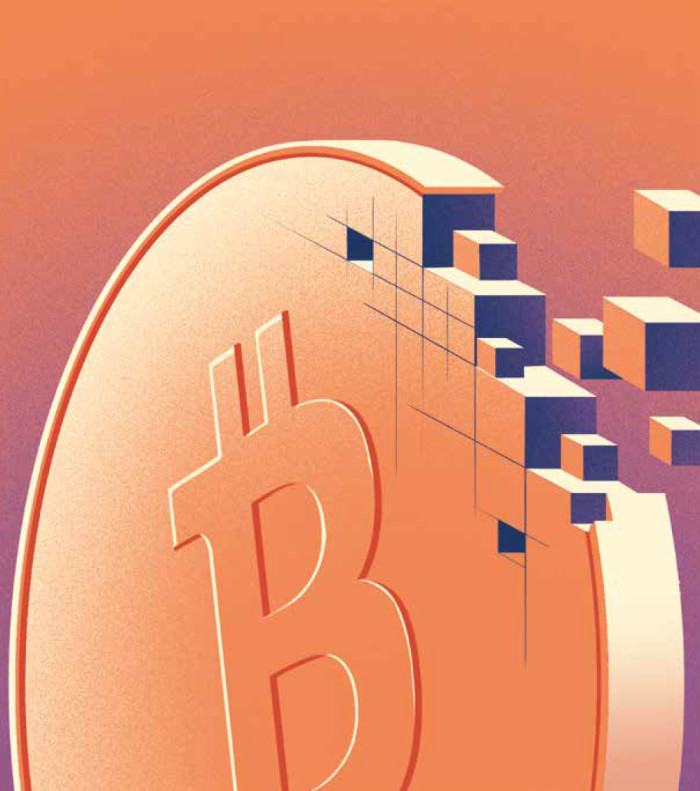What influences cryptocurrency values?

Simply sign up to the Cryptocurrencies myFT Digest -- delivered directly to your inbox.
Those in the crypto world will be familiar with the blithely confident expression, “number go up”. Use of the phrase in the digital asset space dates back about four years, according to David Gerard, an author and journalist.
While the term was in circulation elsewhere before the 2009 creation of bitcoin, let alone the more recent boom, it points to a fundamental question at the heart of a $2tn-plus industry: what, and who, influences the value of crypto?
Ask diehard believers why bitcoin was priced at $68,000 earlier this month, up from less than $30,000 at the start of the year, and their answer may be that it is just down to the market understanding its true value.
Certainly, financial institutions have made efforts to appear more crypto-friendly over the past year. Payment companies such as Mastercard and Visa are among those that have run experiments with digital currencies.
In politics, cryptocurrency advocates lauded the decision by El Salvador’s authoritarian president, Nayib Bukele, to make bitcoin legal tender in September. Then New York’s incoming mayor, Eric Adams, announced this month that he wanted his first pay cheque in bitcoin.
But critics say this does not necessarily translate into a healthy industry. “Bitcoin markets are hugely manipulated,” says Gerard. “The scam is, who gets to cash out when the bubble collapses. There are lots of reasons to be deeply suspicious.”
There are plenty of mechanisms sceptics point to when alleging market manipulation. Take the case of “whales”, who typically own more than 5 per cent of a given coin. They have the ability to dictate the price of the wider market by holding on to their hoards, keeping them out of circulation and driving up the price. Or, if they want to add to their holdings, they can first sell enough to make the price fall.
Bitcoin’s connections to other cryptocurrencies have also raised concerns about its pricing. A 2019 paper suggested a link between the price of bitcoin and the stablecoin tether, which has had to settle with the New York attorney-general and the Commodity Futures Trading Commission over the reserves that support its supposedly stable value.
“Overall, our findings provide support for the view that price manipulation can have substantial distortive effects in cryptocurrencies,” wrote professors John Griffin of the University of Texas at Austin and Amin Shams of Ohio State University. Tether argued that the paper was “flawed”; the company, which says it has $72bn worth of coins in circulation, has yet to give details on the short-term dollar debt that underpins about half of that.
There is now a universe of other digital currencies beyond bitcoin. Many will be familiar with dogecoin, which began as a joke before the patronage of Tesla chief Elon Musk sent the price soaring. Today, even that is deemed too mainstream by some, leading to conceptual offshoots such as baby doge and floki inu seeking to capitalise on its success.
The way in which these altcoins — a broad term for all non-bitcoin cryptocurrencies — rise and fall in value can be equally opaque, in a space crowded with “pump and dump” schemes such as the squid coin. Named after but unaffiliated with the hit Netflix series, it saw its price driven up by speculation as media coverage drew in overconfident punters. In the end, the developers made off with $3.6m of cash from those who thought they were in on the next big thing.
Cryptocurrencies looking to deliver a dose of Fomo (fear of missing out) can turn to celebrities to endorse their products. Personalities from actor Matt Damon and American football player Tom Brady to reality television star Kim Kardashian have all appeared in adverts promoting cryptocurrencies or related companies.
Ben McKenzie, better known as Ryan Atwood in teen TV drama The O.C. and James Gordon in Gotham, is highly critical of the practice. “I have no problem with celebrities getting involved with products,” he says. But he adds: “There’s a massive difference between Audible [audiobook] deals, or any other project that celebrities can sell, and effectively selling [a] financial instrument or gamble — and a gamble in which you have no idea what the risks are.”
For many investors, the chance that “number go up” is enough to entice them to put money into cryptocurrencies. But, as McKenzie says, the concern lies in the opaqueness of the sector. That, tied to a relentless boosterism about the transformative quality of crypto, helps explain surging prices. But it offers little certainty to buyers, let alone the regulators and governments still getting to grips with the future of digital cash.

Comments